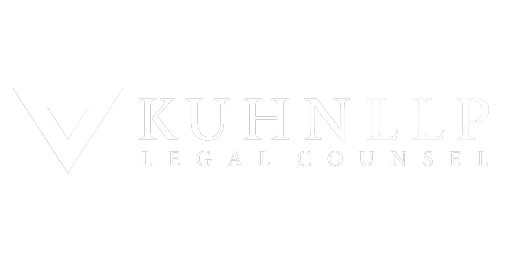Guest Byline: Diana Dilworth, HAVAN Director, Government Relations, first published in the HAVAN Monday Morning Briefing Members-only email, January 23, 2023
Connect with Diana on Twitter @DianaDilworth
This past week included a trilogy of sector-focused, sold-out events, filling up hotel ballrooms, with business leaders and elected officials talking about what advancing housing supply looks like, the impact of interest and inflation increases, development approval timelines, and other hot topics. All three events identified challenges and barriers with a similar theme of addressing costs of housing, access to labour and talent, purpose-built rental, partnership with First Nations, and of optimism and forecasted economic improvement.
HAVAN’s annual Legends Dinner event held last Wednesday evening featured three of the construction industry’s top influencers in the region. The inaugural Trailblazer Edition hosted a panel of our younger generation professionals speaking to their journey, the current economic situation, and their outlooks for 2023. Mike Mackay (Strand), Evan Allegretto (Intracorp Homes) and Mindy Wight (Nch’kay Development Corp.) provided for an amazing evening of story-telling and industry perspectives and insights, moderated by Kirk LaPointe, Publisher, and Editor-in-Chief of BIV and Glacier Media VP Editorial.
The importance of reconciliation and partnership was highlighted with the successful story of the Nch’kay’s Senakw project being built in collaboration with Westbank Projects Corp. on reserve lands. With financial support from the Federal Government and a Service Agreement with the City of Vancouver, Senakw will be one of Canada’s first large-scale net zero operational carbon housing developments, providing 6,000 new sustainable homes to the City, by the year 2030. The majority of these homes will be market-rental housing with 300 units built as below-market homes dedicated to the Squamish Nation’s members.
The cost of housing was a hot topic with ongoing regional and municipal increases to DCC’s and CACs across the lower mainland only adding to affordability, in an environment where both inflation and interest rates have been climbing. Panelists challenged local governments to look at their staff culture and their level of taxation on building new homes, and to focus energies on stream-lining the development approval process, as mandated by Premier Eby and supported by provincial policy and grants.
Panelists recognized the importance of an ethical approach to operating their businesses within parameters of environmental and social expectations and this relates not just to the development process and construction but to the impact that this may have on financial investment into their projects.
Delving into ethical values, our Legends identified Diversity, Equity and Inclusion (DEI) as a concept that ensures fair treatment and opportunity for all. It aims to eradicate prejudice and discrimination on the basis of an individual or group of individuals’ protected characteristics. There are a number of different approaches to understanding and implementing a lens of DEI, with our panelists supporting the value of diverse voices and employee well-being as central facets of their success.
In terms of financial investment in development projects, many financial backers are implementing Environmental, Social, and Governance (ESG) Investing and looking at the social impact of their investment decision-making. Does your company show real support for the environment, social causes, and good governance? Can you meet the investment criteria that is being developed by your investors?
The lens of ESG as a value driver for real estate has become an important business consideration, as noted in an article from Deloitte, and an examination by Principles for Responsible Investment provides an overview of what best practice looks like in the incorporation of ESG in real estate.
Local developers are hiring staff that specializes in ESG to help combat climate change, promote a circular economy, drive functional social changes, support purposeful careers, and be a model in responsible management. If you are new to the concept, ForConstructionPros has prepared a primer.
Overall, the 2023 Legends Dinner was an enlightened, education,al and certainly entertaining event and HAVAN is very appreciative of our sponsors, moderator, panelists, elected officials, and members that came out to join us. Check out the photo gallery here.
Earlier in the week, the Greater Vancouver Board of Trade hosted a State of the City Address with Mayor Ken Sim. In his first major address to the business community, the mayor outlined a four-year plan for the future of Vancouver tackling the housing crisis as a priority. He noted that his administration will be focused on reducing permitting timelines, stating “Vancouver does not have a shadow crisis, Vancouver does not have a view cone crisis. In Vancouver, we have a housing crisis.” While identifying challenges related to housing, Sim promised a pro-supply approach to approving new developments and added that the City should be home to the tallest and densest developments in the region, rather than Surrey or Burnaby.
The week ended with the Urban Development Institute holding its 2023 January Forecast Luncheon moderated by CEO Ann McMullen and Avtar Bains of Premise Properties. Industry leaders Beth Berry (Beedie), Rick Ilich (Townline), Tim Grant (PCI), and Jennifer Podmore Russell (Rennie) provided their projections for the year ahead and how we continue to navigate in a post-pandemic, recession year.
There was broad agreement across the panel that BC is in a technical recession but all were optimistic that inflation and interest rates would decrease by the end of the year. Discussion around purpose-build-rental supply forecasted that while new supply is coming to market, it is not nearly enough to meet demand and that there needs to be a higher level of incentivization by the provincial and federal governments. This was confirmed by CHMC’s latest vacancy report, noting that Metro Vancouver vacancy rate dropped to 0.9%, far below the national average of 1.9%.
It was a busy week with hundreds of industry professionals attending these events in an effort to make post-pandemic reconnections, to understand the current economic situation, enjoy personal story-telling and to hear what our leaders project what we have to look forward to in the future. PS. I’m an optimist!
Looking to stay up-to-date on Metro Vancouver’s residential housing industry? Sign up for Ron’s weekly Monday Morning Briefing and other HAVAN emails here.










